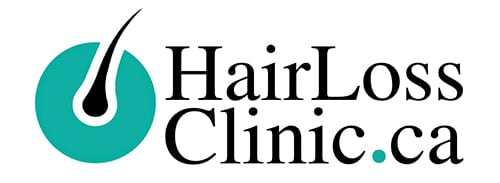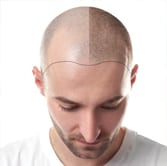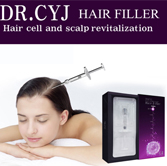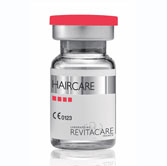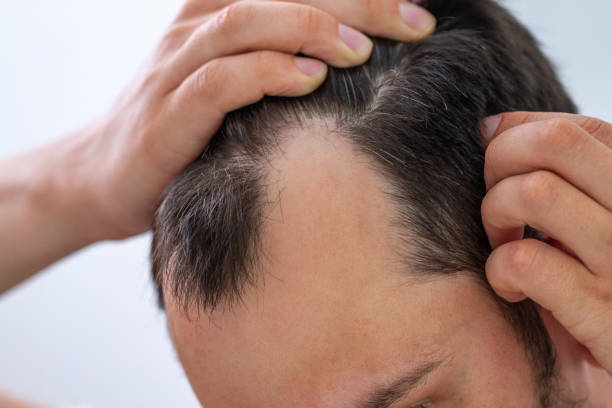November 3, 2023 By simonw Comments are Off
Table of Contents
Introduction to Hair Regrowth
Introduction
Hair represents more than a mere physical attribute; it serves as a symbol of identity, well-being, and aesthetic appeal. However, for many individuals, the battle against hair loss is a significant concern. Whether it’s due to genetic factors, hormonal changes, medical conditions, or other underlying causes, the quest for hair regrowth is a common and often challenging journey. We will explore the domain of hair regrowth, delving into its intricacies, uncovering the scientific foundations of hair loss, and offering effective remedies to aid you in reviving your healthy and abundant hair.
Understanding the Growth Cycle of Hair
Before we dive into the causes and treatments of hair loss, it’s essential to comprehend the natural growth cycle of hair. Hair undergoes a continuous and cyclical process that consists of three main phases:
Anagen Phase (Growth Phase)
The anagen phase represents the active period of hair growth, during which hair follicles are busily creating new hair cells. This stage can span between two and seven years and plays a crucial role in defining the length of your hair. Genetic factors primarily dictate the duration of the anagen phase, causing it to differ among individuals.
Catagen Phase (Transitional Phase)
After the anagen phase, hair enters the catagen phase, a transitional stage lasting for about two to three weeks. In this period, the hair follicle reduces size and disengages from the hair strand, expulsing it.
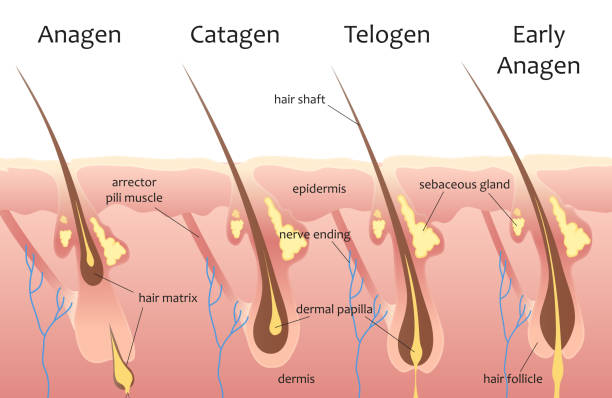
Telogen Phase (Resting Phase)
The telogen phase represents the hair cycle’s inactive period, typically about three months. In this phase, the hair follicle is in a state of rest, leading to the eventual shedding of the hair strand. Shedding 50-100 hairs daily during the telogen phase is considered typical.
This cycle repeats itself continuously, and it’s important to note that different hair follicles on your scalp may be at different stages at any given time. Understanding this natural process is crucial when considering treatments for hair regrowth.
The Science Behind Hair Loss
Alopecia, or hair loss, can be a disturbing ordeal that impacts individuals of various ages, genders, and walks of life. While it is a common issue, the underlying causes can be complex. To effectively address hair loss and promote hair regrowth, it’s important to explore the scientific factors contributing to this condition.
Genetic Factors in Hair Loss
Genetics exerts a substantial influence on your vulnerability to hair loss. Frequently called male or female pattern baldness, androgenetic alopecia is passed down through families. In men, this often manifests as a receding hairline and balding on the crown, while women may experience diffuse hair thinning. Understanding your genetic predisposition is the first step in tailoring a treatment plan.
Hormonal Changes and Hair Loss
Hormones can also influence hair growth and loss. For instance, dihydrotestosterone (DHT), a derivative of testosterone, can shrink hair follicles and lead to thinning and hair loss in individuals with androgenetic alopecia. Hormonal fluctuations due to pregnancy, menopause, or conditions like polycystic ovary syndrome (PCOS) can also impact hair health.
Hair Loss Due to Medical Conditions
Certain medical conditions and autoimmune diseases, such as alopecia areata, can trigger sudden and severe hair loss.
Alopecia areata is characterized by the immune system mistakenly targeting hair follicles, resulting in hair loss in well-defined patches. In such situations, pinpointing and tackling the root medical issue is vital.
The Impact of Nutrition on Hair Loss
Keeping a well-rounded diet rich in vital nutrients like B vitamins, amino acids, and vitamin C is essential for supporting healthy hair growth. Nutrient deficiencies can lead to hair loss, and addressing these deficiencies through dietary changes or supplements can be an effective part of a hair regrowth strategy.
The Role of Stress in Hair Loss
Psychological stress can exert a significant influence on the condition of your hair. Telogen effluvium, a condition triggered by extreme stress, can lead to temporary but significant hair loss. Stress management and self-care are essential components of any comprehensive treatment plan.
Current Treatment Options for Hair Loss
Losing hair can be distressing, and while there are numerous causes of hair loss, including Androgenic alopecia – the most common type of hair loss – there are also various treatments available. Seeking guidance from a certified dermatologist or healthcare professional is crucial for comprehending the root cause of your hair loss and selecting an efficient treatment approach.
Medications for Hair Regrowth
Minoxidil
Minoxidil, often recognized by its Brand name in Canada and other countries, is an FDA-approved medication for both men and women experiencing hair loss. Initially used for high blood pressure, researchers found hair regrowth as a side effect. Now, it’s commonly used in foam or liquid form to stimulate hair growth. Some patients may experience skin irritation as one of its possible side effects.
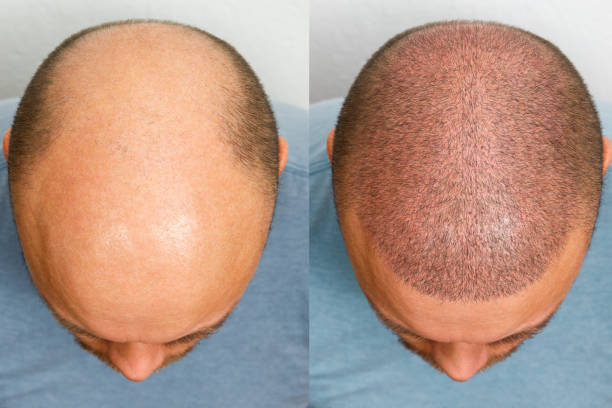
Finasteride
Finasteride, another FDA-approved oral medication, primarily targets male pattern baldness. Doctors noticed that hair regrowth is a beneficial side effect while prescribing this drug for prostate issues. Nevertheless, there are considerations to discuss with a doctor, especially for women who are on birth control pills or are pregnant.
Other FDA-Approved Medications
Other medications for addressing various forms of hair loss have received approval from the Food and Drug Administration (FDA). Oral contraceptives or birth control pills can sometimes help with female pattern hair loss. However, it’s crucial to undergo blood tests and consult a dermatologist before choosing medical treatments.
Hair Transplant Surgery
Over the years, hair transplant procedures have become increasingly popular. This surgical procedure involves transferring hair follicles from one body part to the balding area. Hair transplants provide more permanent results compared to medications. The success of hair transplants largely depends on the skill of the dermatologist or surgeon.
Laser Therapy for Hair Loss
Laser therapy aims to enhance blood flow to hair follicles, stimulating growth factors and stem cells associated with hair regrowth. While some small studies suggest potential benefits, more extensive clinical trials are necessary to confirm its effectiveness.
Natural Remedies for Hair Regrowth
Natural treatments have piqued the interest of those hesitant about medications or surgical procedures. Although not all natural remedies have solid evidence backing their effectiveness, some have shown promise in small studies.
Essential Oils for Hair Regrowth
Combining essential oils with a carrier such as Coconut or Jojoba oil has been appreciated for boosting hair growth. For example, peppermint oil demonstrated increased hair growth in a double-blind study without notable side effects. Likewise, Castor oil, abundant in growth factors, can be applied through scalp massage for possible advantages. Conducting a patch test is recommended to verify the absence of any unfavourable skin responses.

Scalp Massage and Hair Growth
Scalp massages offer not just a pleasurable experience but also the potential to increase blood circulation to the hair follicles, which may, in turn, support hair growth. While evidence from large studies is lacking, some small studies and anecdotes from hair stylists suggest benefits.
Balanced Diet and Hair Growth
Maintaining hair health is significantly influenced by a well-balanced diet. Hair loss can be a consequence of nutritional deficiencies. Consumption of foods abundant in vitamins, minerals, and proteins has the potential to stimulate hair growth. Conversely, rapid weight loss can trigger hair loss. Therefore, it’s imperative to uphold a balanced diet to mitigate such concerns.
Herbal Supplements for Hair Regrowth
While there are numerous products in the market labelled natural hair growth supplements, not all have clinical trials backing their claims. Some herbs, like saw palmetto, might help with male and female-pattern hair loss. As always, before initiating any new medication or supplement, it’s crucial to seek advice from a healthcare professional.
Innovations in Hair Regrowth
With the advancement of technology and medical research, the possibilities for hair regrowth have expanded tremendously. It’s a fact that hair loss, once considered irreversible in many cases, can now be addressed with several innovative treatments.
Stem Cell Therapy for Hair Regrowth
One of the most effective treatments making waves in the world of hair regrowth is Stem Cell Therapy. By using the patient’s cells, experts can rejuvenate the hair shaft and stimulate growth. This method offers hope, especially for children and young adults with early or patchy hair loss.
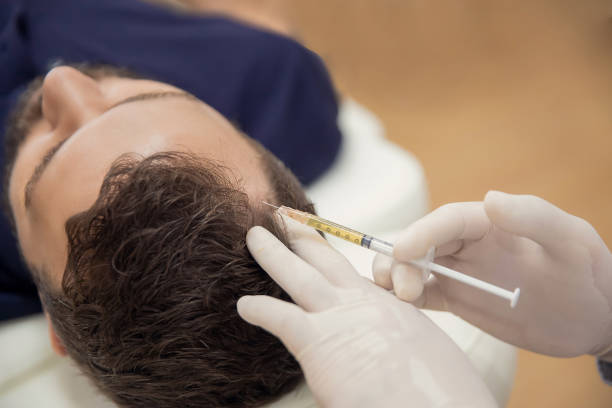
Platelet-Rich Plasma (PRP) Therapy
Another groundbreaking treatment is Platelet-rich plasma injections. This approach entails extracting a small quantity of the patient’s blood, followed by its processing to amplify the concentration of platelets, which are subsequently administered to the scalp. It’s a natural hair growth supplement that harnesses the body’s healing power to regenerate hair follicles.
Advances in Hair Transplant Techniques
Hair transplant techniques have come a long way. With more precise tools and refined techniques, hair stylists and surgeons can now transplant hair with minimal scarring and more natural-looking results.
Maintaining Hair Health
The health of your hair is not solely dependent on treatments or genetic factors; it’s also about daily care and lifestyle choices.
Scalp and Hair Care Routine
A proper hair care routine is essential. This includes gentle cleaning, avoiding harsh chemicals, and nourishing the hair shaft with essential oils and serums. Consulting a hairstylist can provide personalized advice and product recommendations.
Impact of Healthy Lifestyle Choices on Hair Health
Diet, exercise, and stress management are vital in hair health. A balanced diet can prevent many common causes of hair loss. Many hair issues can be addressed by simply maintaining a healthy lifestyle.
Avoiding Damaging Hair Practices
Over-styling, frequent heat treatments, and tight hairstyles can lead to permanent hair loss. It’s essential to let your hair rest and avoid practices that strain or damage the hair shaft.
Conclusion: Understanding Hair Regrowth
Navigating the world of hair loss and regrowth can be overwhelming with the content and misconceptions out there
Misconceptions about Hair Loss and Regrowth
A common misconception is that total baldness is irreversible. But with treatments like stem cell therapy and PRP, there’s hope even for those with significant hair loss. Another myth is associating hair loss only with age; young children can also experience hair conditions.
Future Outlook on Hair Regrowth Treatments
The future looks promising. Ongoing research and advancements in treatments such as stem cell therapy and platelet-rich plasma injections suggest that the predominant reasons for hair loss might soon be relegated to history.
Making Informed Decisions about Hair Regrowth
Before opting for any treatment, it’s essential to consult with specialists. A pull test or other diagnostic tools can help determine the cause of hair loss. Depending on the diagnosis, prescription medications or other treatments may be recommended. Always make decisions based on facts and personalized expert advice.
Q&A
What are the most common causes of hair loss?
The primary reasons encompass genetics, hormonal fluctuations, stress, lack of essential nutrients, and specific medical issues.
Can hair regrowth be achieved naturally without any treatments or medications?
Yes, in some cases, hair regrowth can occur naturally, especially if the hair loss is due to temporary factors like stress or nutritional deficiencies.
Are there any proven natural remedies for promoting hair regrowth?
Some natural remedies like aloe vera, rosemary oil, and ginseng have shown potential in promoting hair regrowth, but results may vary among individuals.
How do prescription medications like minoxidil and finasteride work for hair regrowth?
Minoxidil works by increasing blood flow to the hair follicles, while finasteride blocks the hormone responsible for hair thinning, both promoting hair regrowth.
What are the potential side effects of using prescription medications for hair regrowth?
Potential side effects include skin irritation, changes in hair texture or colour, and, in rare cases, sexual side effects with finasteride.
Are there any innovative treatments, such as stem cell therapy, showing promise for hair regrowth?
Yes, stem cell therapy is promising as it involves using one’s cells to stimulate hair growth at the follicular level.
How do platelet-rich plasma (PRP) injections promote hair regrowth?
PRP involves using the patient’s blood, which is centrifuged to concentrate the platelets, and then injecting it into the scalp. This can stimulate hair follicles to grow.
What role does a healthy diet play in supporting hair regrowth?
A diet abundant in vitamins, minerals, and proteins can bolster hair health and facilitate regrowth by delivering vital nutrients to the hair follicles.
Can a scalp and hair care routine help improve the chances of regrowing hair?
Yes, maintaining a clean scalp and avoiding harsh hair products or treatments can prevent further hair loss and create a conducive environment for regrowth.
What is the most effective treatment for male pattern baldness?
The most effective treatment currently is a combination of prescription medications and PRP.
Book Your Free Consultation Today Or Call (647) 492-9093
FREE ONLINE HAIR LOSS ASSESSMENT CONSULTATION
Comments are closed.
